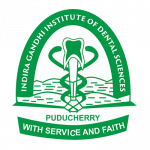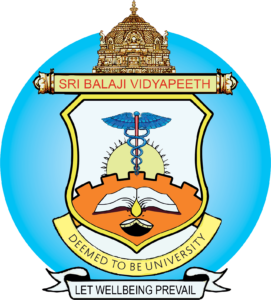




under graduATE
LEAVE RULES
The student should have a minimum of 80% attendance to be eligible to appear in the exams. Therefore do not take excess leave without any reason.
Prior information should be given compulsorily through the form that is enclosed here.
Leave without prior intimation will be viewed severely. The student will not be given attendance for three consecutive days but should attend the classes. Before taking medical leave, a certificate from a Registered Medical Officer should be obtained mentioning the tentative period of leave. Another letter should be given with the doctor’s certificate if the leave is extended for the same medical reasons. On joining back, again a joining report with a medical certificate from the same doctor should be submitted indicating the complete period of leave.
DRESS CODE
In order to feel comfortable and confident in yourself, also to make your working companions and faculty comfortable and to keep up with the expectations of the patients, the following dress code is followed in IGIDS.
- All students should strictly comply with these rules inside the campus from 8.30 to 4.30 on all working days.
- The students who do not follow the dress code are denied permission into the classes, clinics, labs, and library.
- The students should be possessing a minimum of 3 uniform sets and white slip-on shoes and white socks, which they have to wear from home/hostels.
- They have to clean and laundered frequently to maintain them clean and neat.
- In the pre-clinical prosthodontia labs, dental materials lab and conservative labs, they have to wear reusable impermeable plastic aprons to avoid splattering of lab materials on them.
- In the clinical departments, while treating the patients, a disposable impermeable gown should be worn. Head cap and mask should be worn also.
- The gown used in the clinical should NOT be worn as streetwear or outside of patient care areas.
- ID card should be worn at all times.
- Heavy ornaments, finger rings and bangles, and flowers should not be worn.
- Strong smelling scents should be avoided as some patients are allergic to it.
- Fingernails must be clean, manicured to be short. No nail polish allowed.
- All female students should put up their hair in a bun or secure it in a clutch. Hair should not fall on their faces.
- All male students should be cleanly shaved. Properly groomed and trimmed mustache or beards may be allowed.
HOSTEL RULES AT A GLANCE
- All inmates are expected to maintain strict discipline in the campus and in the hostel.
- Ragging in any form causing physical or emotional hardship to anyone is strictly prohibited. Any student found indulging in ragging will be expelled from the hostel immediately and further action will also be taken as per rules.
- No student should possess or consume narcotics drugs or liquor in the hostel or on the campus. If anyone is found violating the rule, he or she will be expelled from the hostel.
- No one should convene or arrange or participate in any unauthorized meeting in the hostel or campus
- No student will be allowed to stay outside the hostel without prior permission of the warden.
- The hostel gate will be closed at 7.00 p.m and no one will be allowed to enter after the gates are closed.
- If any member falls ill the warden should be informed immediately for the necessary action.
- Any student found absent will be dealt with seriously or parents will be summoned.
- Disfigurement of hostel property and wall and damaging the hostel property in any manners are prohibited and strict disciplinary action will be taken on those found guilty
- The hostel authorities will inspect the rooms at any time and the member shall cooperate with them.
- Students have to submit leave application prior. Leave will be approved by the chief warden based on the recommendations of the residential warden. On no account, they should leave the hostel before they are permitted to do so. On extending the leave the parents should intimate the hostel in charge or warden.
- The students going out of the college campus should enter the date and time of leaving and returning to the hostel in the register available in the hostel. They are not permitted to go out of the campus after 6.00 p.m and those who left the hostel prior to 6.00 p.m should return by 7.00 p.m
- Ignorance of rules and regulation of the hostel will not be treated as an excuse.
- Possession of Gold ornaments, Valuables & Heavy Cash is not encouraged inside the hostel. Management is not responsible for the loss of any of the above.
post graduaTE
LEAVE RULES AND REGULATIONS
- The total number of working days in post graduation is 300 days excluding Sundays and national holidays in a year.
- The postgraduate is eligible for 20 days to leave in each year.
- The final year an additional 6 days are given for study holidays.
- They are also eligible to take 14 days to leave for conferences.
- So total eligibility in these years is 80 days.
- Dissertation related to off-campus visits will be considered as on-duty leave. The maximum permitted is 10 days inclusive of the weekends.
- Extramural postings that are part of the DCI norms, will also be considered as on-duty leave.
- Any other special external postings if recommended by the head, will be considered on a case-by-case basis.
- All leave letters should be duly signed by the Head and the Vice principal, Student Affairs. A photocopy should be submitted to the office for filing.
- If the leave is unplanned due to an emergency situation, a mail or an SMS should be sent to the Head, marking a copy to the office, the same day.
- Leave taken beyond 80 days will amount to a loss of stipend.
- The leave application form is available in the office.
RESPONSIBILITY BEFORE RIGHTS
The postgraduate can benefit and enjoy their rights to leave only if they fulfill their responsibility for the course requirements. If the work is incomplete, then institution and the departments have the right to use their discretionary powers to deny the students leave. Each student should obtain a minimum of 80% attendance in a year. However, it is to wise to remember that the post-graduation is designed in such a way that it demands 100% of time and dedication for effective learning and practice.
ATTENDANCE
- Biometrics should be recorded before 8.30am.
- Late entry may be excused only under the following conditions; If it is only one day in a month OR If the entry is before 8.45am
- Otherwise, a late entry will be recorded as absent and one day leave should be surrendered for every late report.
- Beyond the prescribed number of days, it will result in loss of stipend. Conferences and CDE programs
- The trainee shall be encouraged to attend conference/workshops advanced courses and also prevent at least two scientific papers and two posters at State / National level specialty and allied conferences/conventions during the training period. Academic activities
- Every postgraduate must complete a prescribed number of seminars, journal clubs, case presentations and teaching classes as per the department schedule.
- The library dissertation and dissertation should be done as per the time schedule is given by the institute and the department.
- Short studies or any other research apart from the above are highly encouraged.
- It is mandatory to adhere to the DCI prescribed clinical and preclinical works to be eligible to appear for
CONFERENCES AND CDE PROGRAMS
- The trainee shall be encouraged to attend conference/workshops/advanced courses and also to prevent at least two scientific papers
and two posters at State / National level specialty and allied conferences/conventions during the training period.
ACADEMIC ACTIVITIES
- Every postgraduate must complete prescribed number of seminars, journal clubs , case presentations and teaching classes as per the department schedule.
- The library dissertation and dissertation should be done as per the time schedule given by the institute and the department.
- Short studies or any other research apart from the above are highly encouraged.
- It is mandatory to adhere to the DCI prescribed clinical and preclinical works to be eligible to appear for exams.
FORMATIVE ASSESSMENT
- A logbook should be maintained as per the departments’ specification. The logbook contains evaluation checklists as prescribed by the DCI. All the academic works will be evaluated periodically and signed by the Head of the department
- Apart from this, a weekly portfolio in hard copy or e-format must be maintained.
- Quarterly Multisource feedback will be done once in taking feedback from the patients, colleagues and staff nurse.
- Quarterly performance appraisal by the teachers will also be done every three months.
- All the related forms and criteria for assessment will be available in www.igids.ac.in
PUBLICATIONS
- Scientific Paper / Poster Presentation In State / National Level Conferences (4 Papers/Posters during three years of training period)
- Scientific Publications (optional) (One publication in any indexed scientific journal)
LIBRARY
- The IGIDS library is equipped with latest books, journals with back volumes and e-access to the journal through Proquest and Ebsco host’
- The students can contact the librarian for the user name and password.
- Library access is opened from 8.30 am to 10.00 pm.
- Reprographics is also available
All postgraduates will undergo the BLS course and obtain a certificate from MGMCRI, SBV.


